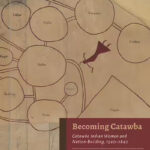2022 Prize Winners
The Berkshire Conference of Women Historians is pleased to announce the following awards for books and articles published in 2022.
Book Awards
For a first book in any field of history that does not focus on the history of women, gender, and/or sexuality
We would like to thank all of the authors who submitted their first book in any field of history that does not focus on the history of women, gender, and/or sexuality. This year’s competition led the committee to award the prize to one book and highlight a particularly strong honorable mention.
 2022 > Christina Ramos, Bedlam in the New World: A Mexican Madhouse in the Age of Enlightenment (The University North Carolina Press, 2022)
2022 > Christina Ramos, Bedlam in the New World: A Mexican Madhouse in the Age of Enlightenment (The University North Carolina Press, 2022)
Bedlam in the New World is a history of madness – of how people understood mental illness and grappled with the complexities of caring for individuals who did not conform to prescribed behavior. Focused on the Hospital of Saint Hippolytus in Mexico City (established in 1567), Christina Ramos shows that the first mental hospital in the Americas remained a remarkably flexible institution for over three hundred years.
She does so by taking a history from below approach that centers the experiences of people who stayed there. Based on exemplary archival research, the author sophisticatedly pieces together a narrative that challenges historiographical assumptions that such places were about social control and punishment, as posited for Europe. Instead, Ramos reveals that people who struggled with mental distress found a degree of respite within this hospital’s walls. Nurses and doctors operated within a caregiving culture based on Christian ethics that did not weaponize scientific knowledge.
Ramos thus demonstrates that the medicalization of mental illness varied by historical context, in this case driven by a sense of social responsibility for suffering people. Her book is a novel contribution to various fields, including the history of science and medicine and urban history.
Washington U. Center for the Humanities interview with Christina Ramos >
Honorable Mention:
2022> Kathryn Olivarius, Necropolis: Disease, Power, and Capitalism in the Cotton Kingdom (The Belknap Press of Harvard University Press, 2022)
In Necropolis: Disease, Power, and Capitalism in the Cotton Kingdom, Kathryn Olivarius examines the intersection of yellow fever epidemics, race, socioeconomic class, and political power in antebellum New Orleans. Instead of creating opportunity for social or cultural change, the disease created the basis for a hierarchy that benefited from resisting change and perpetuating inequalities. She convincingly argues that White New Orleanians claimed their supposed immunity proved their superiority which they then utilized for economic and political gain. Any immunity of those enslaved, on the other hand, provided continued support for slave-based capitalism and exploitation of new immigrants.
Her impressive use of archival materials provides a window into understanding the connections among disease, race, economics, and politics from multiple angles. Necropolis is a fascinating and highly original contribution to the field.
We would like to thank all of the authors who submitted their first book for consideration in fields of history that focus on the history of women, gender, and/or sexuality. This year’s submissions were particularly strong and led our committee members into a long discussion of the merits of each one of the finalists.
For a first book deals substantially with the history of women, gender, and/or sexuality
 2022 > Brooke M. Bauer, Becoming Catawba: Catawba Indian Women and Nation-Building, 1540-1840 (The University of Alabama Press)
2022 > Brooke M. Bauer, Becoming Catawba: Catawba Indian Women and Nation-Building, 1540-1840 (The University of Alabama Press)
Brooke M. Bauer’s Becoming Catawba: Catawba Indian Women and Nation-Building, 1540–1840 is a deeply feminist work which tells the history of women who maintained the Catawba Nation. Bauer shows how Catawba women stewarded their ancestral lands in the Carolinas, stressing their role as water keepers, and how they sustained their Nation’s beliefs through cultural production and pedagogical practices.
Drawing on the methods of women’s history, ethnohistory, and environmental history, Bauer decolonized the archives that often obscured the presence, let alone the role that women played in the community. Using pottery, letters, maps, oral tradition, oral history, materials culture, museum and archeological artifacts, she artfully traced the intricate role that women played in the nation building process. Thanks to her intimate and distinct knowledge of the language, her work highlights how these women safeguarded the survival of the Catawba people and their identity.
Honorable Mention: 2022 > Christine Taitano DeLisle, Placental Politics: CHamoru women, White Womanhood, and Indigeneity under US Colonialism in Guam (University of North Carolina Press, 2022).
An important contribution that centers indigenous CHamoru women’s experiences in analyzing power relations under US colonialism in Guam. DeLisle’s work is methodologically expansive whereby she uses wide-ranging sources to craft the historical narrative drawing upon oral histories, letters, photographs, and military records. Her work highlights the complex interactions across race, class, gender, indigeneity in the making of colonial and postcolonial Guam society, beyond trauma.
This work extends the discussion on indigenous sovereignty highlighting the work CHamora women performed as stewards of land and bodies. In claiming their bodies and placentas, these women fought to simultaneously control their bodies and their lands, pushing back against the violence that was visited upon their physical bodies and their lands. The author fleshes out the connection between the two and in doing so allows for the resilience and agency of CHamoru women to be illuminated in the past and into the present. Moreover, Delisle’s work centers reproduction as a lens for examining the past, allowing readers to recognize that even as this was an embattled ground, subaltern groups found creative ways to retain bodily and cultural integrity in the face of colonial violence.
Honorable Mention: 2022 > Sarah Mellors Rodriguez, Reproductive Realities in Modern China: Birth Control and Abortion, 1911-2021 (Cambridge University Press, 2023)
This study is a careful mapping of the changing history and landscape of reproduction across modern Chinese history from 1911-2021. The author charts the shifts from pro-natal to anti-natal, back ( in the more contemporaneous times) to pro-natalist state policies and politics. It is a great read in allowing us to recognize competing histories of reproductive politics across time and space. Similar to DeLisle’s work Mellors-Rodriguez highlights how centrally state politics are determined through reproductive imperatives, which are tied to ever-evolving modernist ideals of progress and economic development.
Explore Book Prize Winners, 2012 – 2022 >
2022 Berkshire Book Award Committee
- Julie de Chantal, Georgia Southern University – Chair
- Sanjam Ahluwalia – Northern Arizona University
- Ashley Baggett, North Dakota State University
- Jeannette Estruth, Bard College
- Anna Krylova, Duke University
- Emily Owens – Brown University
- Tatiana Seijas – Rutgers University
- Carolyn Waldron – University of Dayton
Article Awards
For an article in the fields of the history of women, gender, and/or sexuality
2022 > Meg Weeks, “A Prostitutes’ Jamboree: The World Whores’ Congresses of the 1980s and the Rise of a New Feminism,” Journal of the History of Sexuality, Vol. 31, Issue 3, September 2022.
Weeks explores the differing political philosophies (and tactics) of the groups who came together at the sex-worker conferences, and how they forged international alliances despite contrasting goals, and differing cultural contexts.
She considers the political conflicts within the movements to have had a galvanizing effect, “moving it beyond the classic impasse of structure versus agency that mired many a political debate in the twentieth century”.
For an article in any field of history other than the history of women, gender, and/or sexuality
2022 > Samantha Payne, “A General Insurrection in the Countries with Slaves: The US Civil War and the Origins of an Atlantic Revolution, 1861-1866,” Past & Present, Vol. 257, Issue 1, November, 2022.
Payne foregrounds the actions of enslaved people in the debate about emancipation following the American Civil War and its ripple effects on the other slave states of the Americas. She argues the end of the Civil War precipitated the abolition of slavery in Cuba and Brazil because of the actions of these slaves.
Members of the Committee were impressed by the breadth of her research, with archives in several countries and multiple languages. By considering the communications network that existed among enslaved people and free people of color in the Atlantic world, she was able to consider how much their participation affected the changing discourse of emancipation.
By reading across the micro to the macro, the changing circumstances for both enslaved people and free people of color as increased surveillance and restrictions were enforced in the wake of the American Civil War in the remaining slave states of the Americas, where authorities were concerned that liberty was contagious. Her work brings into clearer view the role of black people in the pursuit of liberty and in the discourse of emancipation through the Atlantic World.
Explore Article Prize Winners, 2013-2023 >
Reviewers: 2022-2023 Berks Article Award Committee
- Katrina Gulliver, University of Bristol, Chair
- Elaine Abelson, The New School
- Silvia Arrom, Brandeis University
- Emily Burrill, University of Virginia
- Margaret Darrow, Dartmouth College
- Anna Danziger Halperin, CUNY School of Professional Studies
- Jessica Davidson, James Madison University
- Patricia Harms, Brandon University
- Evan Elizabeth Hart, Missouri Western State University
- Fatemeh Hosseini, NYU Washington, DC
- Jillian Jacklin, University of Wisconsin, Green Bay
- Cherisse Jones-Branch, Arkansas State University
- Kelly O’Donnell, Bryn Mawr College
- Ariella Rotramel, Connecticut College
- Nichole Rustin, Rhode Island School of Design
- Mytheli Sreenivas, Ohio State University


One thought on “2022 Prize Winners”